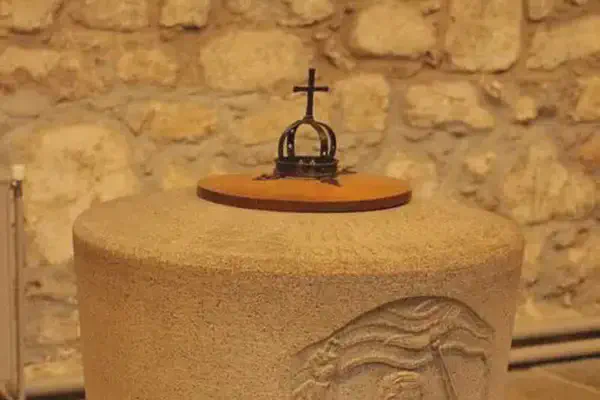On March 23, 1893 in Celtic History
Birth in dublin of cedric gibbons, designer of the coveted oscar statuette

Cedric Gibbons (23 March 1893 - 26 July 1960) was an art director, generally regarded as the most important and influential in the history of American film. The son of an architect, Austin Cedric Gibbons was born in Dublin, Ireland and emigrated with his family to New York City. He worked on his first film released in 1919 by Edison Studios but after his one film the studio was closed and he signed with Samuel Goldwyn. This evolved to working for Louis B. Mayer and a thity-two year career at MGM.
In 1930, he married actress Dolores del Rio. They divorced in 1941 and he remarried to actress Hazel Brooks with whom he remained for the rest of his life. Gibbons was one of the original thirty-six founding members of the Academy of Motion Picture Arts and Sciences and is credited with designing the Academy Awards Oscar statue for which he himself would be nominated thirty times, winning eleven - second only to Walt Disney, who won 26.
Cedric Gibbons retired in 1956 with more than 1,000 films to his credit. This number is misleading, however, because his contract with MGM dictated that he receive credit as art director for every MGM film released in the United States, even though others did the bulk of the work. He passed away in 1960 and was interred in the Calvary Cemetery, East Los Angeles.
Gibbons set designs, particularly those in such films as Born to Dance (1936) and Rosalie (1937), heavily inspired motion picture theater architecture in the late 1930s through 1950s. The style is found very clearly in the theaters that were managed by the Skouras brothers, whos designer Carl G. Moeller used the sweeping scroll-like details in his creations. Among the more classic examples are the Loma Theater in San Diego, The Crest in Long Beach and Fresno, and the Culver Theater in Culver City, all of which are in California. The style is sometimes referred to as Art Deco Moderne. The 2006 Academy Award Show stage set design, held at the Kodak Theater in Hollywood, was inspired by this golden-era period of theater architecture.
Related Content

Shane Patrick Lysaght MacGowan, lead singer of the Pogues, died

St Machar Day, patron saint of Aberdeen

Oíche Shamhna - Cetlic New Year Eve (Halloween)

ALBAN ELFED (Welsh Bardic name for autumn equinox)

Feast day of St. James

John Davie Burgess, King of the Highland Pipers, died at age 71.